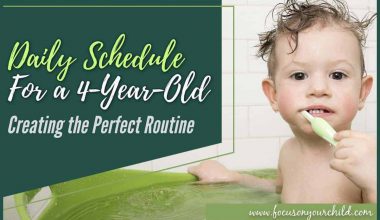You swore you’d never say, “Because I said so!” And yet… here we are.
If you’ve ever found yourself suddenly channeling your own mum or dad—sometimes in the very moments you swore you’d handle differently—you are absolutely, gloriously normal. Welcome to the club.
Let’s have a look at the sneaky triggers our parents handed us (with love, confusion, or perhaps a dash of generational trauma), and how they show up in our own parenting.
1. The Volume Button: When Yelling Feels Like the Only Option
There you are, asking your child for the twelfth time to put on their shoes. Suddenly, you’re at DEFCON 1, voice echoing off the walls like your mum on a Monday morning before school.
Where does this volcanic reaction come from? Often, it’s a learned response.
Research shows that repeated exposure to parental yelling as a child wires our brains to see high volume as a necessary escalation.
What’s a tired parent to do instead? Try the “whisper method.” Instead of ramping up, go quiet. It’s disarming.
Kids tend to listen curiously when you drop your voice, and you’ll break that default cycle. Or, step into another room and breathe—yes, it’s basic, but basic works.
2. The Guilt Trip Express
Nothing takes the wind out of your sails faster than blurting out, “After all I’ve done for you!” only to realise you sound exactly like your own dad.
Families have wielded guilt as a behaviour management tool since the dawn of chores. The intention was usually good: to foster gratitude and respect.
Trouble is, it often cultivates anxiety or resentment instead. According to child development experts, children who grow up swimming in guilt struggle to assert boundaries as adults.
Spot the guilt trip by listening for phrases that start with “After everything…” or end with “…is that so much to ask?”
When you catch yourself mid-sentence, pivot to asking for cooperation, not compliance. Try, “I’d appreciate your help tidying up, what do you need from me to get started?”
It feels awkward at first. That’s just your parents’ voice in your head, protesting the change.
3. The Great Silence: Withholding Affection or Communication
The silent treatment—nothing says ‘I’m disappointed in you’ quite like it.
If you grew up in a house where doors slammed and conversations went on holiday, your nervous system probably expects silence as punishment.
The challenge? Kids are left guessing what went wrong, and the guessing game rarely builds healthy self-esteem. Studies have shown that parental withdrawal is linked to anxiety and attachment issues.
It’s tempting to retreat when you’re upset (especially if you’re an introvert or were taught to keep a stiff upper lip).
Make a new rule for your house: “We talk it out, even if it’s messy.” You can always say, “I need a five-minute breather, but I’ll be back to talk when I’m ready.”
It’s progress, not perfection.
4. The Comparison Game
“She always finishes her vegetables.” “When I was your age, I could ride a bike.” Sound familiar?
If your parents compared you to siblings, neighbours, or imaginary children who always remembered their library books, that script can pop up under stress.
This habit tends to rear its head when we’re worried our child isn’t measuring up, or when we feel like we’re falling behind as parents ourselves. According to developmental psychologists, comparisons don’t motivate; they demoralize.
Whenever you catch yourself about to compare, hit the brakes. Instead, focus on progress: “You’re working really hard on learning to tie your shoes, I see your effort.”
No need for gold stars—just solid encouragement for who your child is, not who they aren’t.
5. The “Because I Said So” Dictator
If your childhood was a monarchy (with your parent on the throne), you may find yourself instinctively snapping orders and shutting down questions. “Why?” “Because I said so.” Full stop.
This approach is tempting when you’re knackered or running late. But children aren’t foot soldiers, and research from parenting experts suggests that explanations foster cooperation, not mutiny.
Try this swap: Instead of “Because I said so,” offer a simple reason. “We’re brushing teeth now because we want to keep them healthy.” Or, “Bedtime is soon, so your brain can grow overnight.”
You don’t have to explain everything (sometimes you just need the shoes on, right now), but sprinkling in reasons helps little people feel respected and, shockingly, more willing to cooperate.
6. Perfection Pressure Cooker
The legacy of “good enough” not quite being… well, good enough.
If your parents held impossibly high standards, you may find yourself sweating over birthday party goody bags or critiquing your child’s attempt at making the bed (it’s lumpy, but it’s theirs).
Perfectionism is contagious. Evidence suggests that parents who struggle to tolerate their own (or their child’s) mistakes accidentally raise anxious, risk-averse kids.
Spotting perfectionism in action looks like nitpicking, over-scheduling, or feeling crushed when things go awry. Tonight, try this: when your child’s attempt isn’t just-so, say, “I love your effort!” and leave it at that.
Let them see you laugh off your own small mistakes, too. Imperfection is where the memories (and the stories you’ll laugh about in 10 years) are made.
7. Emotional Shutdown Button
Some parents—often with the best intentions—modelled the “stiff upper lip” and discouraged big feelings with phrases like “Don’t cry” or “Shake it off.”
Maybe you were even told, “You’re fine,” when you obviously weren’t.
Suppressing emotions might have been a survival skill for your parents, but for your child, it can teach them to bottle up big feelings. Mental health professionals agree that emotional validation is key to healthy development.
Modeling emotional openness is a practice, not a switch. When your child is upset, try saying, “I can see you’re really frustrated. That’s okay. Everyone feels that way sometimes.”
You don’t have to solve everything—just being present and acknowledging their feelings is enough.
If big emotions make you twitchy, that’s normal. Practice with small moments: “That was disappointing, wasn’t it?” Or, “Wow, that looks fun!” The more you practise, the easier it gets for both of you.
Unpacking Triggers Without Unraveling
You can’t erase your childhood, and frankly, no one wants to. Those quirks, scars, catchphrases, and inherited eyebrow raises—they’re part of your story, and they helped mold you into the parent you are.
But you do get to choose which family patterns stick around. Start by noticing what comes up for you in heated moments.
Is that really your voice, or is it a well-worn recording?
Try jotting down the triggers you spot over the next week.
Pick one to experiment with—a new phrase, a fresh approach, a breather before you react. Then see what shifts, both in your child and in yourself.
You’re not meant to parent on autopilot. And if you find yourself muttering something straight out of your own childhood, well—at least you’re in excellent company.
It’s not about being perfect; it’s about being present, curious, and willing to do things a little differently.
One generation at a time, we change the story. Not bad for a night’s work (with or without your shoes on).




